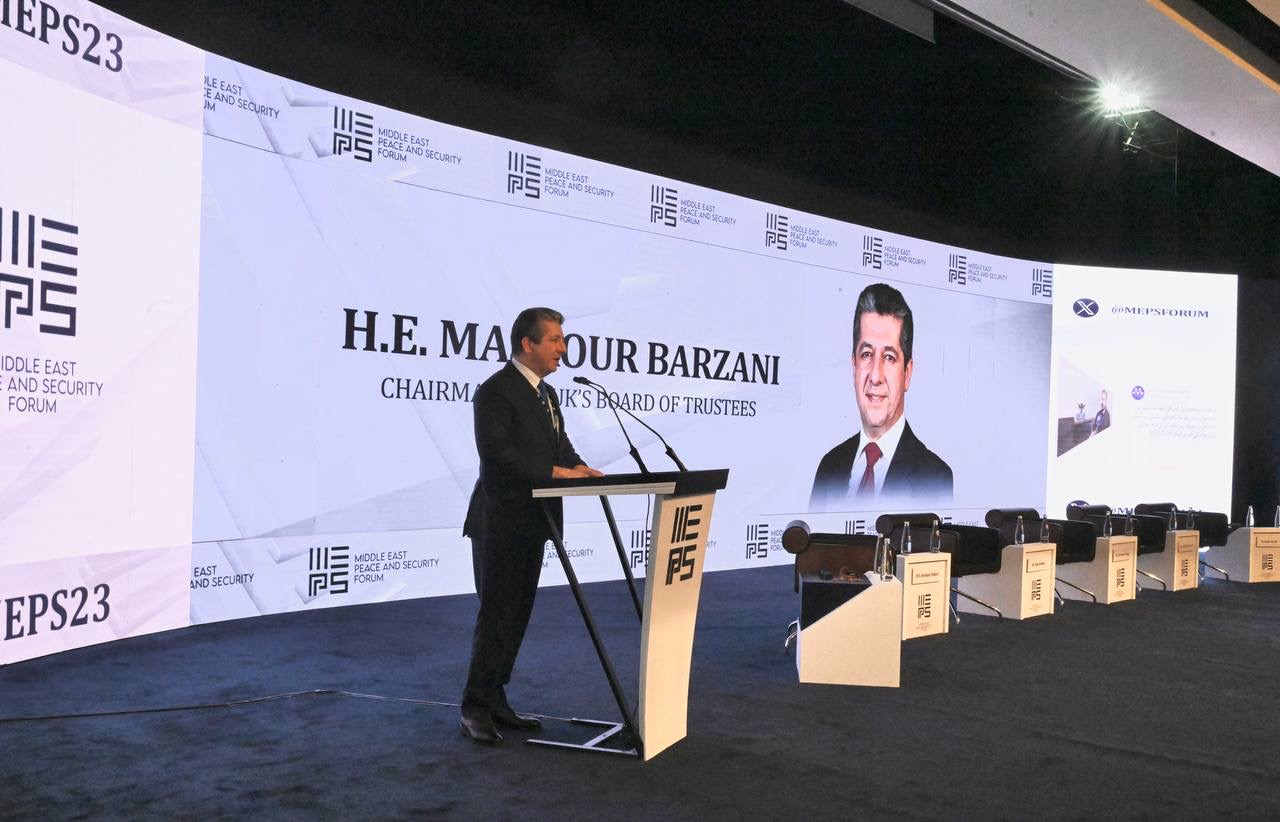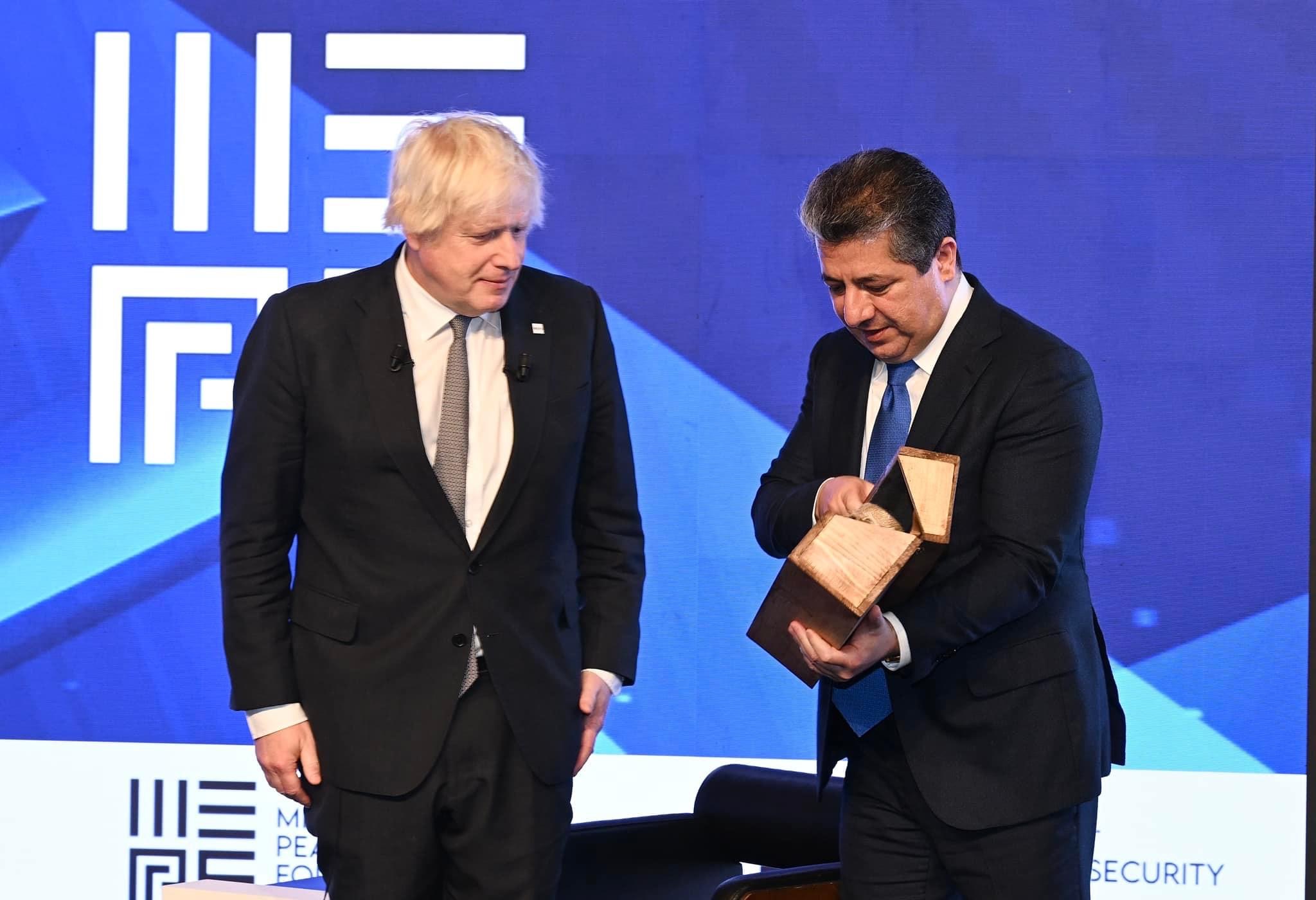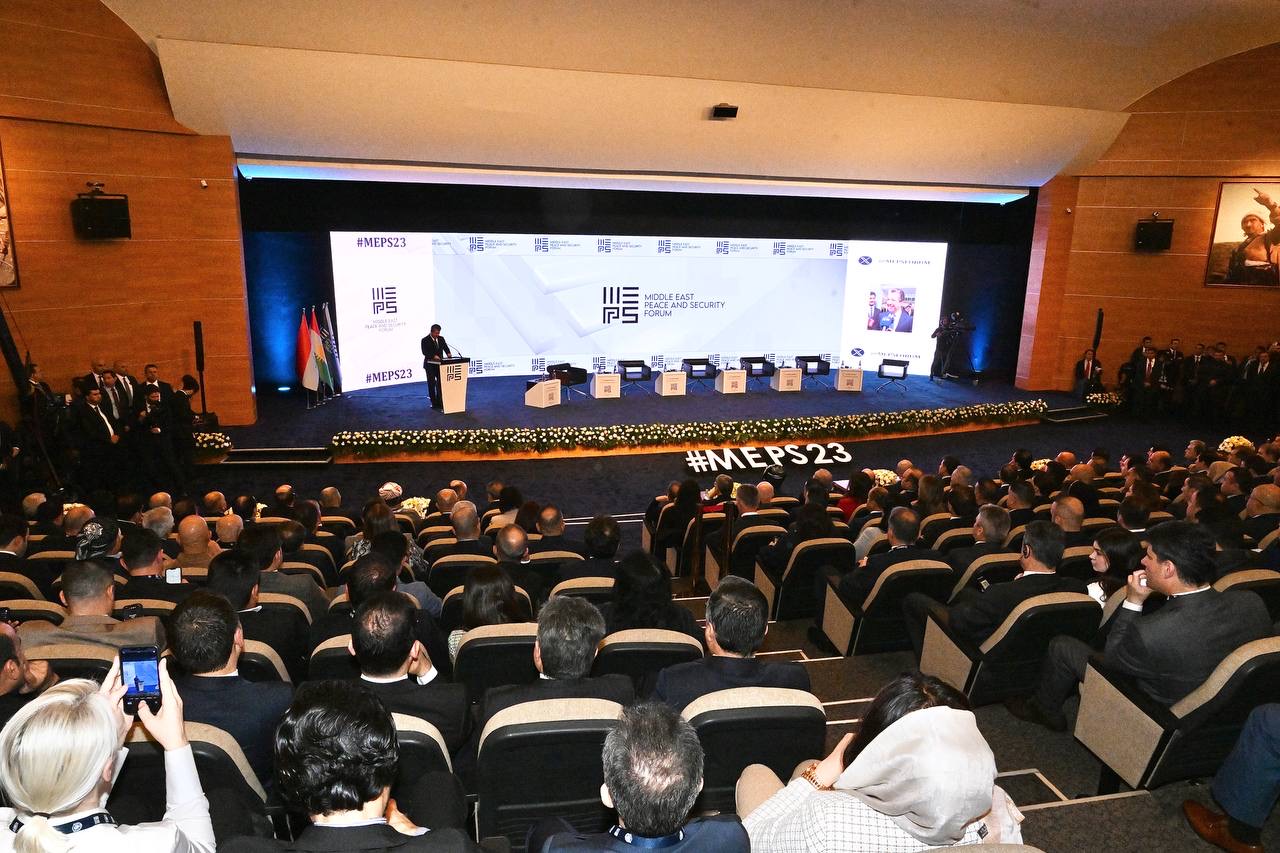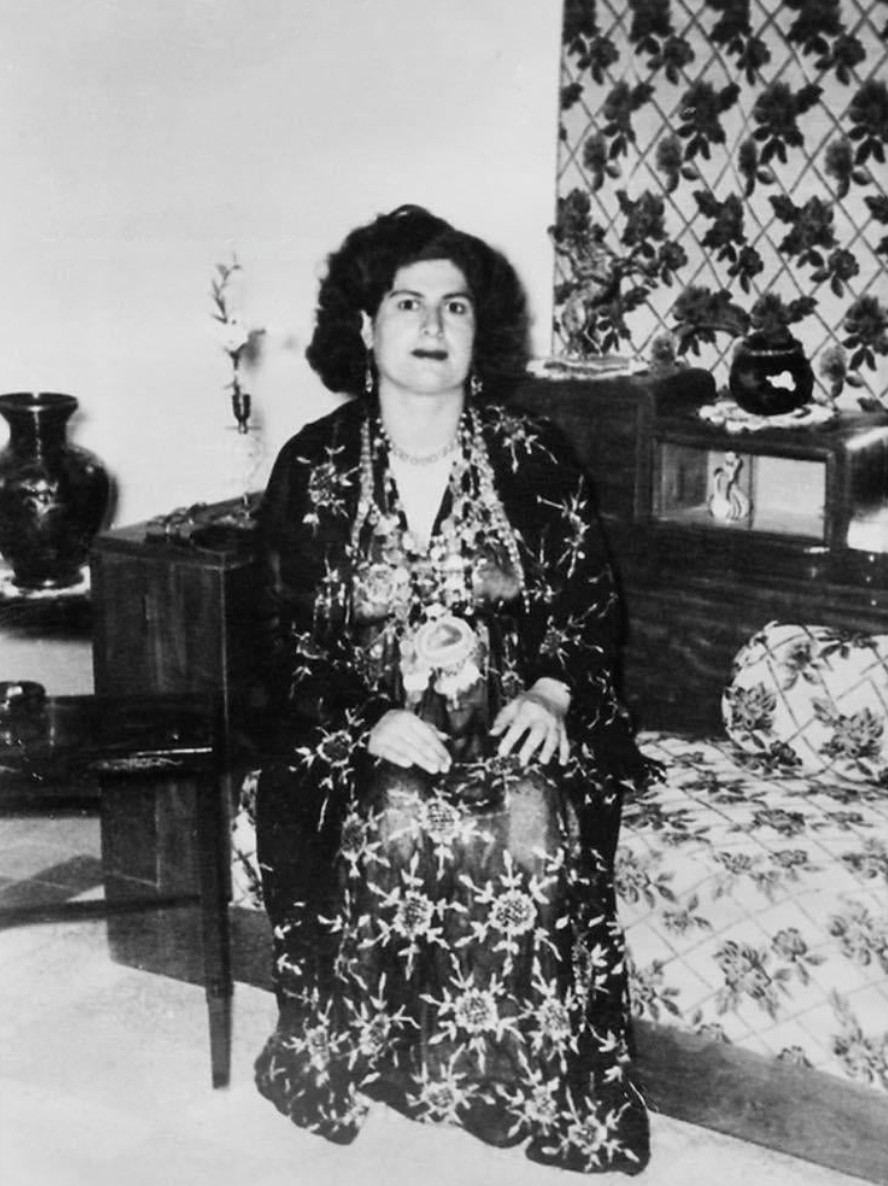The 2023 Middle East Peace and Security Forum (MEPS 23) in Dohuk provided an opportunity for regional and international leaders and stakeholders to sit down and discuss the potential for lasting peace, sustainability, and collaboration in a pivotal part of the world, all against the backdrop of the diversity, tolerance, and security that is championed in the Kurdistan Region of Iraq (KRI).
Amid these key conversations, Maryam Moshiri, chief presenter at the BBC, sat down with Kurdistan Regional Government (KRG) Prime Minister Masrour Barzani to discuss a range of issues, from the international community’s relationship with the KRI to the role that youth and women have in helping the region continue to develop and thrive.

Looking inward and outward
To begin the interview, Moshiri mentioned the ongoing conflict in Gaza and asked what role Iraq can or should play in presenting a solution. Prime Minister Barzani touched on the region’s history of conflict, and his hope that the KRI can help provide humanitarian aid. “We are very tired of wars, and we hope that there will be an end to the war and peaceful solutions are going to be introduced,” he said, underlining the importance of following up promises with action. “Slogans are not going to help the people in need of medicine, food, and security. The best action would be to provide assistance to the people in need.”
Pivoting to the topic of internal politics, Prime Minister Barzani reiterated the importance of maintaining a federal state in Iraq and delegating power and rights equally to each region, as stipulated in the Iraqi constitution. “Kurdistan has done everything that is required by the constitution, but we’ve never enjoyed the rights that we have in the constitution,” the Prime Minster said.
Regarding the region’s evolving relationship with international players, especially the United States and China, Prime Minister Barzani emphasized the need for economic collaboration. “We would like them to be more engaged on an economic level. We welcome everyone who wants to expand the relations with our region and to help develop our economy.”
He also underlined the positive relations between the UK and the KRI, highlighting the economic opportunities that the KRI has for UK investors.

Economic development
Moshiri and the prime minister also discussed the resumption of oil exports from the KRI. While the KRG is ready to export oil, more support is needed from the federal government. “Once contracts are respected and once the federal government pays these IOCs [international oil companies], then there is oil to be exported,” Prime Minister Barzani explained.
However, the Kurdistan Region is looking beyond oil to fuel its continued economic development. “We have many other areas that we can develop and diversify our economy and increase our sources of revenue,” Prime Minister Barzani explained. “I have invested in agriculture, industry, tourism. I’m also looking at how we can improve our education and health systems.”
He underlined the importance of embracing technology and digitalization, both in the public sphere and in the private sector, especially in terms of finance. “I would like to call this a revolution in transforming Kurdistan because it’s not just about diversification of the economy, but it’s also about digitizing our systems and services,” Prime Minister Barzani explained. He announced that the government aims to have one million public employees enrolled in its My Account digital banking initiative by the end of 2024, and that some 1,000 ATMs are being installed around the region to support banking activities.
Agriculture and green energy represent other key components of diversification in the KRI. “Pomegranates, apples, honey, grapes are being exported to the Gulf. We are looking at building dams to produce more electricity, so hydroelectric power is on the agenda, but also solar energy and natural gas instead of oil,” the Prime Minister said.

Shaping the future
When asked about combatting corruption, Prime Minister Barzani explained that it is not just a matter of identifying and punishing the guilty, but about improving transparency and effectiveness in governance. This involves “respecting citizens, cutting bureaucracy, and providing fast services to them,” he said. He also emphasized the importance of equality, honesty and justice. “You need to give services to people regardless of who they are and their rank and their origin and their race. Everybody must be served equally.”
When asked about the role of youth in the KRI and Iraq, he noted the prominence of young people in the KRG administration. “The youth are the future of this country. I’m a firm believer that we need to empower the youth and young talent. In my office, I now have a staff of about 60-70 very talented young people from different regions. These will be the drivers behind the engine of reform and transformation in Kurdistan.”
Moshiri also touched upon the role of women. In response, the Prime Minister noted the importance of a change in mentality. “We need women to be more engaged. It’s a cultural thing, and I think there is a change of the mindset of our own people that needs to be more supportive of women engagement in society.”
He emphasized that, while improving infrastructure and transport connectivity in rural areas has the potential to improve opportunities for women in those communities, the KRG is limited by a lack of funding and support from Baghdad.
When discussing minority rights in Iraq and the KRI, the Prime Minister reframed the question. “It’s not about the majority and minority; it’s about the diversity of communities and religions and ethnicities. We have different communities in Kurdistan, and they all enjoy the same rights,” he said.
The KRI hosts 1 million internally displaced people from other parts of Iraq and about 250,000 refugees from neighboring countries, emphasizing the welcoming nature of the region and its deep-rooted respect for diversity. He also highlighted the plight of the Yezidi people displaced by ISIS. “They have all the right to go back, but they need to go back with dignity. They have to go back victorious.”

Building a vision
When asked about freedom of speech and the role of journalists in the KRI, the prime minister highlighted the responsibility journalists have to their country’s future. “Journalists here in Kurdistan are very active. And they’re very influential. They have the rights to express, to criticize, and I hope that most of their criticism would help us build Kurdistan, learn from our mistakes and realize shortcomings to have a positive impact on the decisions that we make.”
Lastly, he explained his long-term vision for Kurdistan: “I want to see citizens be the center of attention for every government, mine or after me,” he emphasized. “I would like to see time have value. I would like to see bureaucracy stop. I would like to see everyone getting a fair and equal opportunity. I want to see people in Kurdistan serve as the model for others to look up to. I can share my views and ideas with my colleagues, but I need every single citizen of Kurdistan to help me achieve that goal.”
In closing, Moshiri asked about the importance of holding the MEPS Forum in the Kurdistan Region. Prime Minister Barzanui cited the KRI’s central location and the stabilizing role that the Kurdish people aim to play in the Middle East. “We as the Kurds, instead of being elements of separation or destabilization, want to unite the region. We want to bring more stability to the region. We want to be the beacon of development and progress and democracy, and these sorts of conferences show the world that we are different and we can be better.”

Dr. Tyler Fisher (DPhil University of Oxford) is Associate Professor of Modern Languages and Literatures at the University of Central Florida. He has published English translations of poetry from Spanish, Catalan, Aramaic, and Kurdish.

